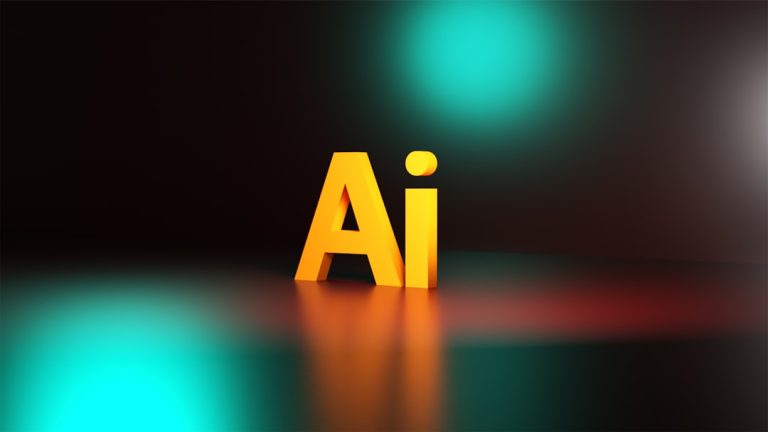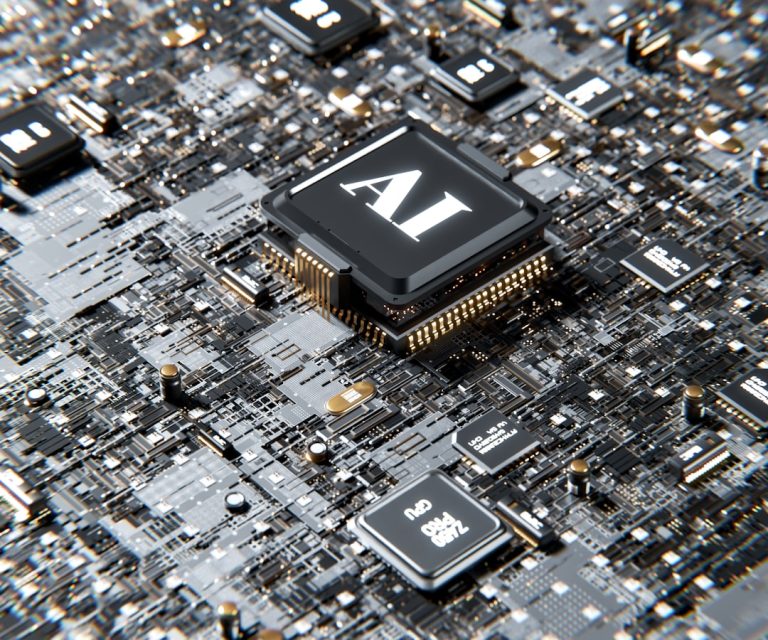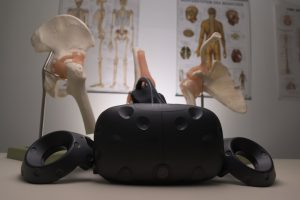Artificial Intelligence (AI) has emerged as one of the most transformative forces of the 21st century, reshaping the landscape of technology and society in unprecedented ways. The rapid advancements in AI technologies, driven by breakthroughs in machine learning, natural language processing, and neural networks, have opened up new frontiers for innovation across various sectors. From self-driving cars to virtual assistants, AI is no longer a concept confined to science fiction; it is a tangible reality that is influencing our daily lives.
As we delve deeper into the intricacies of AI, it becomes evident that its evolution is not merely a technological phenomenon but a cultural shift that challenges our understanding of intelligence, creativity, and even consciousness. The pace at which AI is advancing is staggering, with researchers and developers continuously pushing the boundaries of what machines can achieve. This evolution is characterized by an increasing ability to process vast amounts of data, learn from patterns, and make decisions with minimal human intervention.
The implications of these advancements are profound, as they promise to enhance efficiency, improve decision-making, and foster innovation across various domains. However, this rapid progress also raises critical questions about the ethical implications of AI, its impact on employment, and the potential risks associated with its deployment. As we stand on the brink of an AI-driven future, it is essential to explore both the opportunities and challenges that lie ahead.
Key Takeaways
- AI advancements have revolutionized industries and are expected to continue shaping the future of technology.
- AI has had a significant impact on various industries, from improving efficiency to creating new job opportunities.
- Ethical considerations in AI development are crucial to ensure responsible and fair use of AI technology.
- AI has the potential to greatly improve healthcare by enhancing diagnostics, treatment, and patient care.
- The future of AI in education holds promise for personalized learning and improved educational outcomes.
The Impact of AI on Industries
Streamlining Processes and Enhancing Customer Experience
AI technologies are streamlining processes, enhancing customer experiences, and driving productivity in various industries. For example, in the financial sector, algorithms analyze market trends and consumer behavior to provide personalized investment advice and detect fraudulent activities with remarkable accuracy.
Industry-Specific Applications
AI-driven analytics are being used in retail to optimize inventory management and tailor marketing strategies to individual preferences, thereby enhancing customer satisfaction and loyalty. In manufacturing, AI-powered robotics and automation systems are increasing production efficiency and reducing operational costs by minimizing human error and maximizing precision.
The Future of Work and Skill Development
As industries continue to adopt AI solutions, the potential for innovation expands exponentially. However, this shift also requires a reevaluation of workforce dynamics and skill requirements. Companies must invest in training and development programs that equip employees with the necessary skills to thrive in an AI-enhanced environment.
Ethical Considerations in AI Development

As AI technologies proliferate across various sectors, ethical considerations have emerged as a paramount concern for developers, policymakers, and society at large. The deployment of AI systems raises critical questions about accountability, transparency, and bias. For instance, algorithms trained on historical data may inadvertently perpetuate existing biases present in that data, leading to discriminatory outcomes in areas such as hiring practices or law enforcement.
This highlights the urgent need for ethical frameworks that guide the development and implementation of AI technologies to ensure fairness and equity. Furthermore, the question of accountability becomes increasingly complex as AI systems take on more autonomous roles. When an AI-driven decision leads to negative consequences—be it a financial loss or a safety incident—determining who is responsible can be challenging.
This ambiguity necessitates a robust regulatory framework that not only addresses liability but also promotes transparency in how AI systems operate. As society grapples with these ethical dilemmas, it is crucial to foster interdisciplinary dialogue among technologists, ethicists, and policymakers to create a comprehensive approach that prioritizes human values while harnessing the potential of AI.
The Role of AI in Healthcare
| Metrics | Value |
|---|---|
| Reduction in diagnostic errors | 30% |
| Improvement in treatment planning | 40% |
| Time saved in administrative tasks | 50% |
| Cost savings in healthcare operations | 20 billion |
In the realm of healthcare, AI is poised to revolutionize patient care and medical research in ways previously thought impossible. By leveraging vast datasets from electronic health records, medical imaging, and genomic information, AI algorithms can assist healthcare professionals in diagnosing diseases with remarkable accuracy. For instance, machine learning models have demonstrated their ability to identify early signs of conditions such as cancer or cardiovascular diseases by analyzing imaging data far more efficiently than human radiologists alone.
This capability not only enhances diagnostic precision but also enables earlier interventions that can significantly improve patient outcomes. Moreover, AI’s role extends beyond diagnostics; it is also transforming treatment protocols and personalized medicine. By analyzing patient data in real-time, AI systems can recommend tailored treatment plans that consider individual genetic profiles and lifestyle factors.
This shift towards personalized healthcare not only optimizes treatment efficacy but also minimizes adverse effects by ensuring that patients receive therapies best suited to their unique circumstances. As we continue to explore the potential of AI in healthcare, it is essential to address challenges related to data privacy and security while ensuring that these technologies are accessible to all segments of the population.
The Future of AI in Education
The educational landscape is undergoing a significant transformation as AI technologies become increasingly integrated into teaching and learning processes. From personalized learning experiences to intelligent tutoring systems, AI has the potential to enhance educational outcomes by catering to individual student needs. For instance, adaptive learning platforms utilize algorithms to assess students’ strengths and weaknesses in real-time, allowing educators to tailor their instruction accordingly.
This personalized approach not only fosters engagement but also empowers students to take ownership of their learning journeys. Furthermore, AI can facilitate administrative tasks within educational institutions, streamlining processes such as grading and enrollment management. By automating these routine functions, educators can devote more time to direct student interaction and mentorship.
However, as we embrace these advancements, it is crucial to consider the implications for equity in education. Ensuring that all students have access to AI-driven resources requires addressing disparities in technology access and digital literacy skills. As we look toward the future of education shaped by AI, it is imperative to prioritize inclusivity while harnessing the transformative potential of these technologies.
AI in the Workplace: Automation and Job Displacement

The integration of AI into the workplace has sparked a complex dialogue surrounding automation and job displacement. While proponents argue that AI can enhance productivity and create new job opportunities by automating mundane tasks, critics raise concerns about the potential for widespread job loss across various sectors. Industries such as manufacturing and customer service are particularly vulnerable to automation as machines increasingly take over repetitive tasks traditionally performed by humans.
This shift necessitates a proactive approach from businesses and governments alike to address the implications for workers whose roles may become obsolete. To mitigate the impact of job displacement caused by automation, it is essential to invest in reskilling and upskilling initiatives that prepare workers for the evolving job market. By equipping individuals with the skills needed for emerging roles in technology-driven industries, we can foster a workforce that is adaptable and resilient in the face of change.
Additionally, fostering a culture of lifelong learning will be crucial as workers navigate an increasingly dynamic employment landscape shaped by AI advancements. Ultimately, while automation presents challenges, it also offers opportunities for innovation and growth if approached thoughtfully.
The Potential Risks and Benefits of Advanced AI
As we venture further into an era dominated by advanced AI technologies, it is imperative to weigh both the potential risks and benefits associated with their deployment. On one hand, advanced AI holds immense promise for solving complex global challenges—from climate change mitigation to enhancing food security through precision agriculture. The ability of AI systems to analyze vast datasets can lead to insights that drive informed decision-making across various sectors.
Moreover, advancements in natural language processing enable more effective communication between humans and machines, fostering collaboration that can yield innovative solutions. Conversely, the risks associated with advanced AI cannot be overlooked. Concerns about privacy violations, security breaches, and the potential for misuse of technology loom large as these systems become more integrated into our lives.
Additionally, there is a growing apprehension regarding the concentration of power among a few tech giants who control advanced AI capabilities. This concentration raises questions about accountability and governance in an increasingly automated world. As we navigate this complex landscape, it is essential to strike a balance between harnessing the benefits of advanced AI while implementing robust safeguards that protect individual rights and promote ethical practices in its development and deployment.
In conclusion, the advancements in artificial intelligence present both remarkable opportunities and significant challenges across various sectors of society. As we continue to explore its impact on industries such as healthcare and education while grappling with ethical considerations and workforce implications, it becomes clear that a collaborative approach involving technologists, policymakers, educators, and ethicists will be crucial in shaping a future where AI serves humanity’s best interests. By fostering dialogue around these issues and prioritizing inclusivity and equity in access to technology, we can harness the transformative power of AI while mitigating its risks for generations to come.
If you’re interested in learning more about the implications of Artificial Intelligence on privacy and data usage, you might find the privacy policy of BongoC particularly enlightening. It provides insights into how AI technologies might handle personal data, which is crucial for understanding the broader impacts of AI in digital environments. You can read more about their specific policies and guidelines by visiting their Privacy Policy page. This resource can be particularly useful for anyone looking to understand how AI-driven platforms manage user information and privacy.
FAQs
What is Artificial Intelligence (AI)?
Artificial Intelligence (AI) refers to the simulation of human intelligence in machines that are programmed to think and act like humans. It involves the development of computer systems that can perform tasks that typically require human intelligence, such as visual perception, speech recognition, decision-making, and language translation.
How does Artificial Intelligence work?
Artificial Intelligence works by using algorithms and data to enable machines to learn from patterns, make decisions, and perform tasks without human intervention. AI systems are trained using large amounts of data and are designed to adapt and improve their performance over time.
What are the different types of Artificial Intelligence?
There are three main types of Artificial Intelligence: narrow or weak AI, general or strong AI, and artificial superintelligence. Narrow AI is designed to perform a specific task, while general AI is capable of performing any intellectual task that a human can do. Artificial superintelligence refers to AI that surpasses human intelligence in every aspect.
What are some examples of Artificial Intelligence in use today?
Some examples of Artificial Intelligence in use today include virtual personal assistants like Siri and Alexa, recommendation systems used by streaming services and online retailers, autonomous vehicles, facial recognition technology, and language translation services.
What are the potential benefits of Artificial Intelligence?
The potential benefits of Artificial Intelligence include increased efficiency and productivity, improved decision-making, advancements in healthcare and medicine, enhanced customer experiences, and the ability to automate repetitive tasks.
What are the potential risks of Artificial Intelligence?
Some potential risks of Artificial Intelligence include job displacement due to automation, ethical concerns related to privacy and data security, the potential for AI systems to make biased or discriminatory decisions, and the possibility of AI systems surpassing human control and understanding.
















